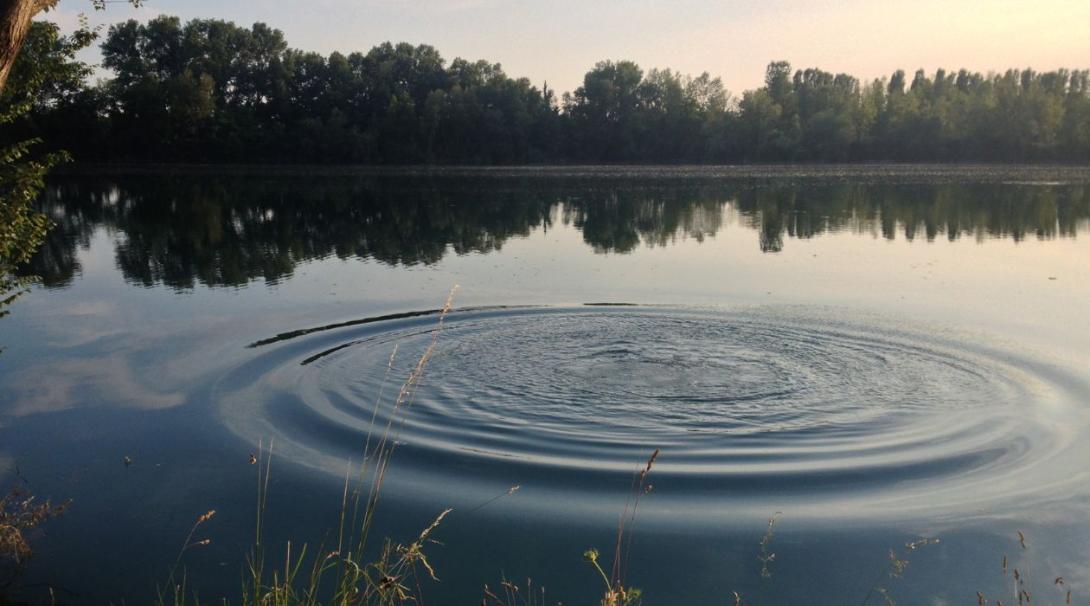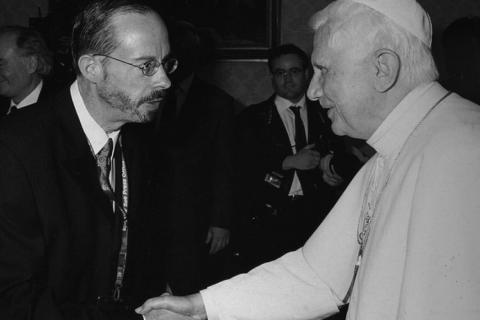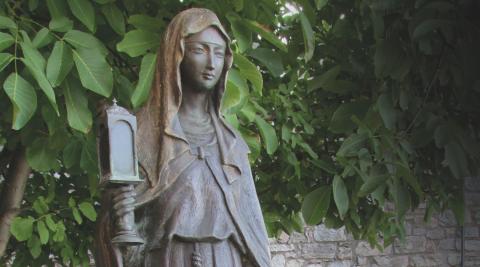
Photo by Getty Images
“Feed the hungry.” “Give drink to the thirsty.” I have long drawn inspiration from what the Catechism of the Catholic Church defines as the corporal and spiritual “works of mercy.” As I reflect on how to channel my energy and concern for others, this guidance often helps me to make my efforts to live the Gospel more concrete.
One of the works of mercy that speaks to me most deeply is “clothe the naked.” Especially in my work to address the divisions that arise because of political and religious polarization, this graphic image helps me be attentive to why it might be difficult for another person to engage in a sincere conversation. Perhaps they might be feeling a sense of shame or embarrassment for some aspect of the dynamic or topic. Or the circumstances might be such that they feel a little over-exposed. When I focus my mind and heart on how I might help to “clothe” that over-exposure, and in this way to honor their human dignity, I often experience a depth of empathy and understanding that helps to generate a constructive conversational space.
Over the past couple weeks, I’ve had many opportunities to “visit the sick.” One of the women in my Focolare community house recently had surgery, and recuperation requires one arm to stay immobile. It is very organic to our community life to help one another concretely, especially when someone is ill—and this is not our first experience!
An act of merciful love is only really such when we are deeply convinced that we are at the same time receiving mercy from the people who are accepting it from us. — St. John Paul II
But this time, I am seeing new opportunities to deepen our mutual love. I am usually the first one up in the morning, and my rhythm is to be very speedy—with the risk of brushing past what others might need. “Visit the sick” has helped me to slow my pace in order to pay deeper attention to exactly what it might mean to be a presence of love for my friend in the morning. It’s often tiny things like preparing the espresso pot for her coffee (which requires two hands), tackling the hard-to-open medicine bottles, or cutting up some fruit for breakfast.
Having lived the early morning in this spirit, when I close the door behind me to leave for work, I notice that the tone has been set for the whole day. Somehow it seems easier to slow down enough to pay closer attention—not only to my neighbors’ needs, but to what God might be asking me at various points in the day.
In Dives in misericordia, a beautiful letter on what flows from God’s own mercy for us, Pope John Paul II reflected, “An act of merciful love is only really such when we are deeply convinced at the moment that we perform it that we are at the same time receiving mercy from the people who are accepting it from us.” (#14)
Similarly, in one of the guides that distills many practical applications of the spirituality of unity, The Art of Loving, Chiara Lubich described a dynamic of love in which those we serve actually become our “benefactors”—in the sense that they help us attain “what we were seeking all along”—union with God.
Some time ago I was helping with a retreat for pre-teen children during which we were reflecting together on how to live the works of mercy in the light of the spirituality of unity. This group loved to do skits, and with the help of a box of simple costumes and material, their imaginations ran free as they put together wonderful scenes.
an indispensable element for shaping mutual relationships between people, in a spirit of deepest respect for what is human, and in a spirit of mutual brotherhood.
When we got to “give drink to the thirsty,” I assumed they would be very literal, perhaps acting out handing a cup of water to someone who asked. Instead, what unfolded was a very complex narrative on the consequences of people carelessly tossing their trash into the ocean. In their skit, this caused injury to a dolphin, who cried out in pain while swaths of flowing red material demonstrated that the poor creature was bleeding. And the best part of the skit? All of this was caught on film by two photojournalists, who told the story to the wider world. At the end, the kids instructed their audience: if we don’t take care of the ocean, soon we won’t even have water for anyone, including the thirsty.
This was definitely an occasion in which I was the beneficiary. I would go so far as to say that they were “instructing the ignorant” (me) on the connections between the works of mercy and care for creation. Even several years later, it’s the memory of their bleeding dolphin crying out in pain that reminds me to step up my game in efforts to conserve and curtail waste.
Closing with a riff on Dives in misericordia, each of these occasions filled me with gratitude for how mercy became “an indispensable element for shaping mutual relationships between people, in a spirit of deepest respect for what is human, and in a spirit of mutual brotherhood.”













